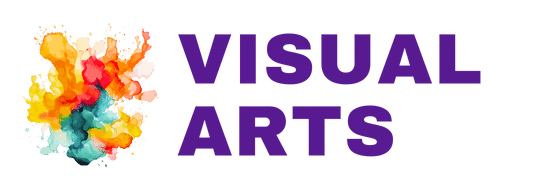What is Performance Assessment?
Performance assessment is a method of evaluating an individual’s skills, knowledge, and abilities by observing their performance in real-world tasks or activities. It goes beyond traditional testing methods by focusing on the application of knowledge in practical situations. Performance assessment can provide a more accurate and comprehensive measure of an individual’s capabilities compared to standardized tests.
Performance assessment often involves the use of rubrics or scoring guides to evaluate the quality of a person’s performance. These rubrics outline specific criteria and expectations for the task at hand, allowing for a more objective assessment of the individual’s performance. Performance assessment can be used in various settings, including education, workplace evaluations, and artistic performances.
Types of Performance Assessment
There are several types of performance assessment, each with its own unique characteristics and purposes. Some common types include:
1. Direct observation: This involves observing an individual as they perform a task or activity in real-time. Direct observation allows for a firsthand assessment of the individual’s skills and abilities, providing valuable insights into their performance.
2. Portfolio assessment: In this type of assessment, individuals compile a collection of their work samples, projects, and achievements to showcase their skills and accomplishments. Portfolios can provide a comprehensive view of an individual’s capabilities and growth over time.
3. Performance tasks: These are hands-on activities or projects that require individuals to demonstrate their skills and knowledge in a practical setting. Performance tasks can range from solving complex problems to creating artistic works, allowing for a more authentic assessment of an individual’s abilities.
4. Peer assessment: In this type of assessment, individuals receive feedback and evaluations from their peers or colleagues. Peer assessment can provide valuable insights from different perspectives and promote collaboration and learning among individuals.
Benefits of Performance Assessment
Performance assessment offers several benefits for both individuals and organizations. Some of the key advantages include:
– Authentic assessment: Performance assessment allows individuals to demonstrate their skills and knowledge in real-world contexts, providing a more accurate and meaningful measure of their capabilities.
– Personalized feedback: Performance assessment provides detailed feedback on an individual’s strengths and areas for improvement, allowing for targeted interventions and personalized learning experiences.
– Skill development: By engaging in performance assessment activities, individuals can enhance their skills, knowledge, and abilities through hands-on practice and feedback.
– Motivation and engagement: Performance assessment can motivate individuals to strive for excellence and actively engage in their learning and development process.
Challenges of Performance Assessment
Despite its many benefits, performance assessment also poses several challenges that need to be addressed. Some common challenges include:
– Subjectivity: Evaluating performance can be subjective, as different assessors may have varying interpretations and biases. It is essential to establish clear criteria and standards to ensure consistency and fairness in the assessment process.
– Time and resources: Designing and implementing performance assessment activities can be time-consuming and resource-intensive. Organizations need to allocate sufficient time, training, and support to effectively conduct performance assessments.
– Validity and reliability: Ensuring the validity and reliability of performance assessment measures is crucial for obtaining accurate and meaningful results. It is essential to use reliable assessment tools and methods to assess performance accurately.
– Feedback and follow-up: Providing timely and constructive feedback to individuals following performance assessments is essential for promoting growth and development. Organizations need to establish mechanisms for follow-up and support to help individuals address areas for improvement.
Best Practices for Performance Assessment
To maximize the effectiveness of performance assessment, organizations and individuals can follow some best practices, including:
– Establish clear goals and objectives for performance assessment activities to ensure alignment with organizational priorities and individual learning objectives.
– Develop rubrics or scoring guides that outline specific criteria and expectations for performance assessment tasks, providing a transparent and consistent evaluation process.
– Provide training and support to assessors to ensure they have the necessary skills and knowledge to conduct performance assessments effectively.
– Encourage self-assessment and reflection among individuals to promote ownership of their learning and development process.
– Use a variety of assessment methods and tools to gather comprehensive and diverse evidence of an individual’s performance, including direct observation, portfolios, and peer assessments.
Examples of Performance Assessment in Art Education
In art education, performance assessment plays a crucial role in evaluating students’ artistic skills and creativity. Some examples of performance assessment in art education include:
– Creating a portfolio of artwork: Students compile a collection of their artwork, including drawings, paintings, sculptures, and digital designs, to showcase their artistic abilities and growth over time.
– Completing a performance task: Students are given a hands-on art project, such as creating a mural, designing a poster, or sculpting a clay figure, to demonstrate their artistic skills and creativity.
– Participating in a peer critique: Students receive feedback and evaluations from their peers on their artwork, allowing for collaborative learning and constructive criticism to improve their artistic abilities.
– Presenting an art exhibition: Students organize and present an art exhibition showcasing their artwork to the school community, providing an opportunity to share their creativity and talent with others.
Overall, performance assessment in art education can provide valuable insights into students’ artistic abilities, promote creativity and self-expression, and foster a deeper appreciation for the arts.
